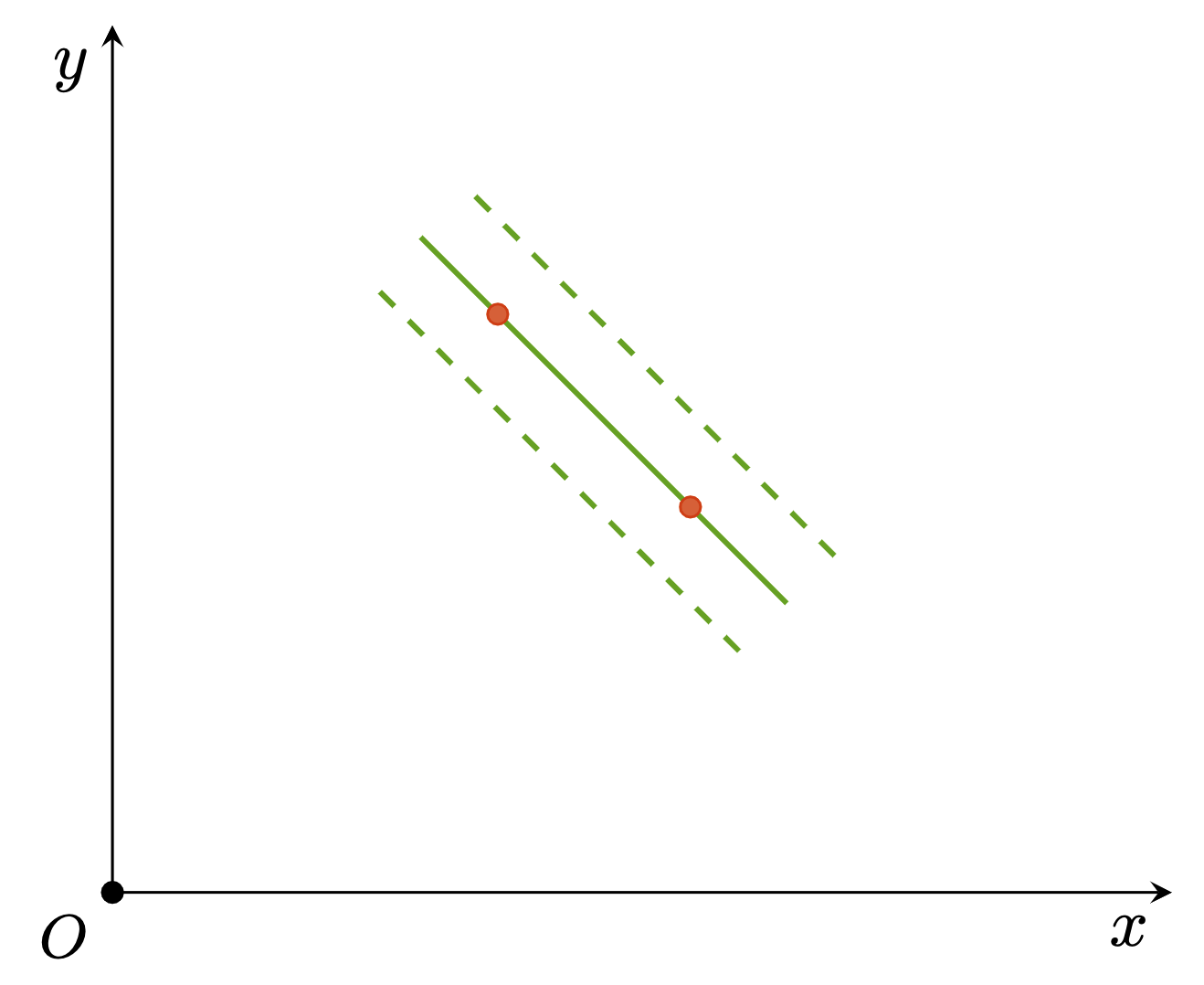Draw parallel lines using TiKZ
This is a simple example of how to draw parallel lines using TiKZ.
\begin{tikzpicture}[scale=1]
\draw[thin, black, -stealth] (0, 0) -- (5.5, 0) node [below left] {$x$};
\draw[thin, black, -stealth] (0, 0) -- (0, 4.5) node [below left] {$y$};
\draw[black,fill] (0, 0) circle (1.5pt) node [below left] {\small $O$};
% point 1
\coordinate (p1) at (3, 2);
% point 2
\coordinate (p2) at (2, 3);
% calculate the unit perpendicular vector
\path let
\n{d}={0.35cm},
\p1=(p1),
\p2=(p2),
\n1={veclen(\x2-\x1,\y2-\y1)},
\n{x}={(\y1-\y2)/\n1},
\n{y}={(\x2-\x1)/\n1},
in coordinate (v) at (\n{d}*\n{x}, \n{d}*\n{y});
% draw lines
\draw[thick, c5] ($(p1) + 0.5*($(p1)-(p2)$)$) -- ($(p2) + 0.4*($(p2)-(p1)$)$);
\draw[thick, c5, dashed] ($(p1) + 0.5*($(p1)-(p2)$) - (v)$) -- ($(p2) + 0.4*($(p2)-(p1)$) - (v)$);
\draw[thick, c5, dashed] ($(p1) + 0.5*($(p1)-(p2)$) + (v)$) -- ($(p2) + 0.4*($(p2)-(p1)$) + (v)$);
\draw[c2, fill=c2!80] (p1) circle (1.5pt);
\draw[c2, fill=c2!80] (p2) circle (1.5pt);
\end{tikzpicture}
Result:
